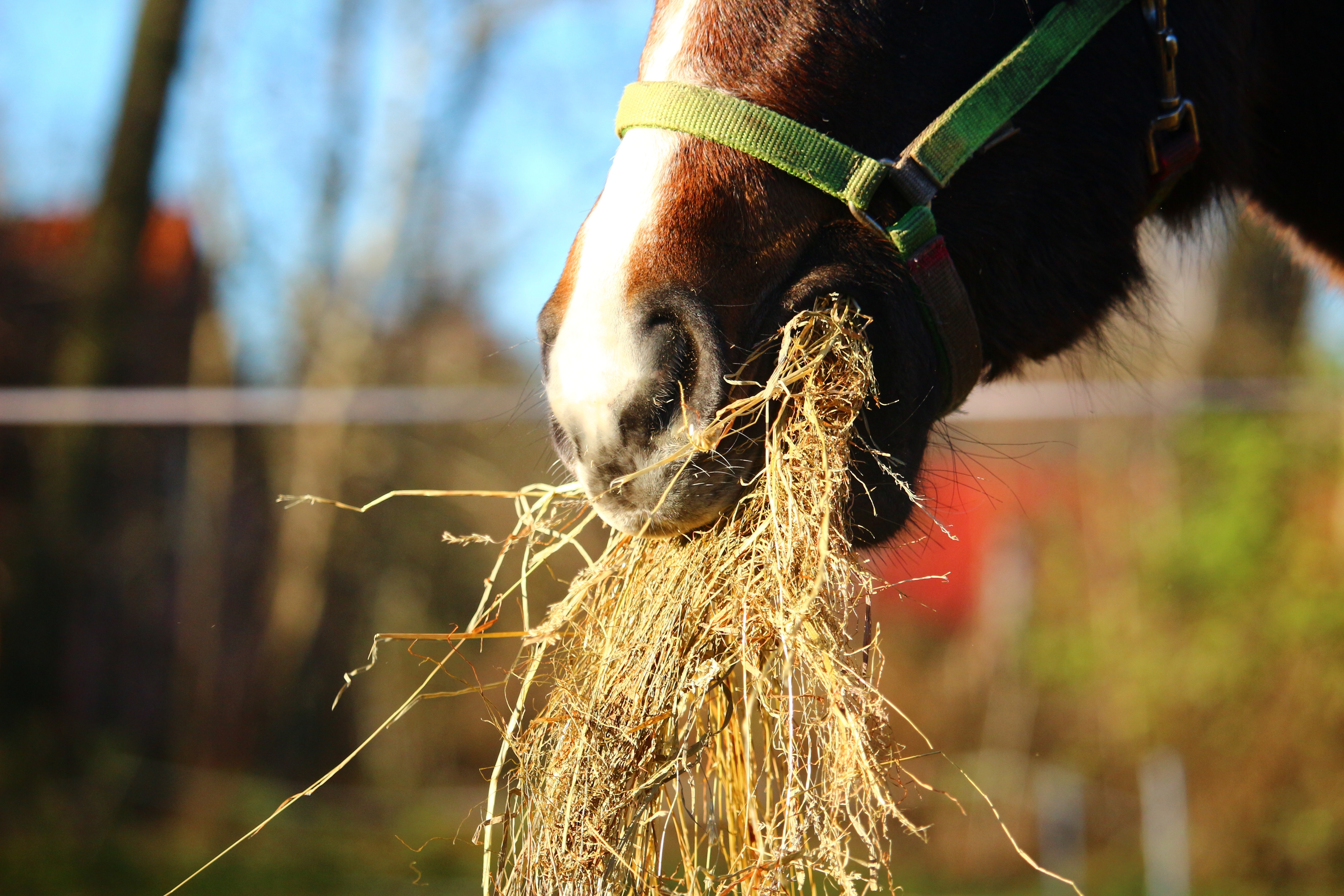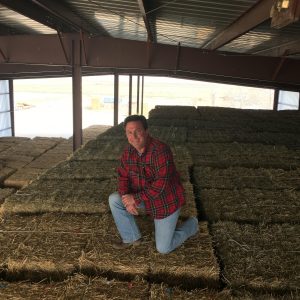
By Emily Powell
What do horses and grocery store milk have in common? Both horses and dairy cows are usually fed similar diets of grass hay or alfalfa hay, which, when grown on free rangeland, boast robust levels of naturally-occurring, valuable micronutrients that support animal and ecosystem health. But commercialized hay agriculture has developed bad habits in nutrient management, producing and distributing hay brimming with artificial compounds that provide little benefit to and even harm horses, their owners, and the environment. It’s a trend that Tom Heshion, co-owner of Organic Hays Co-Op based in Kansas City, Missouri, is determined to reverse.

What’s wrong with traditional hay?
“I grew up on a farm that my father sold when I was six years old. That farm has been growing hay for over 50 years non-organically and without rotation, completely stripping the land of nutrients horses need,” said Heshion.
Heshion explained that traditional farming methods, using pesticides, herbicides and fertilizers, do a wonderful job of producing picture-perfect bales of hay for cheap, but they don’t provide adequate levels of zinc, copper and magnesium that maintain strong joints, strength, good vision and digestive regularity. Without these micronutrients, horse owners are forced to turn to additional, costly supplements. Artificial preservatives are also sprayed on the bales of hay to “maintain freshness” and could be causing unknown harm to the animals.
“The only guy arguing that preservatives are not bad for horses is the one manufacturing them,” he said. Because of this, traditional hay achieves perfect appearance and low wholesale price at the expense of the ecological integrity of the area and the health of the animal.
Why go organic?
Instead of using anything artificial, the certified-organic hay farmers operating with Heshion purchase organic matter to replenish micronutrients and avoid using preservatives. Organic matter engages natural decomposition processes, making it more ecologically logical, and reduces the cost of horse care.
“If you use great quality organic hay [grown using organic matter], your horses won’t need supplements,” Heshion said. This argument is supported by the hair analysis service they provide to their customers. Using a small sample of horsehair from an animal on an established diet of traditional hay, the veterinarian experts at Organic Hays determine which nutrients are most desperately deficient in a particular owner’s barn. This information is used to hand-pick the most nutritionally appropriate organic hay from across the Organic Hays network.
“We’re much more than a hay company,” he points out, “because I’ve been a horse owner my whole life and I actually care.” Heshion emphasizes that the personalized experience allows horse owners to provide the best possible care for their animals at the best possible price.
As their distribution expands out of Kansas City and into California and Arizona, more agricultural land is being converted to organic – a process which takes at least 36 months to complete – and is fighting artificial compounds that negatively impact land and biodiversity, pollute local waterways, and may be contributing to the demise of honeybees.
For more information and for inquiries about transitioning your barn from traditional to organic feed supply and contributing to the development of sustainable agriculture, visit organichays.com
or call (816) 728-2933.
Emily Powell is Arizona native pursuing Bachelor’s degrees in Sustainability and Geography at Arizona State University. A self-described “wilderness junkie,” Emily aims to develop sustainable solutions for wilderness preservation and management by promoting human-to-nature connection through creative storytelling.







Thank you for doing what you do! I hope to learn more in the future
It’s amazing that here in 2020 you can still not find organic hay for sales within 300 miles of anywhere.